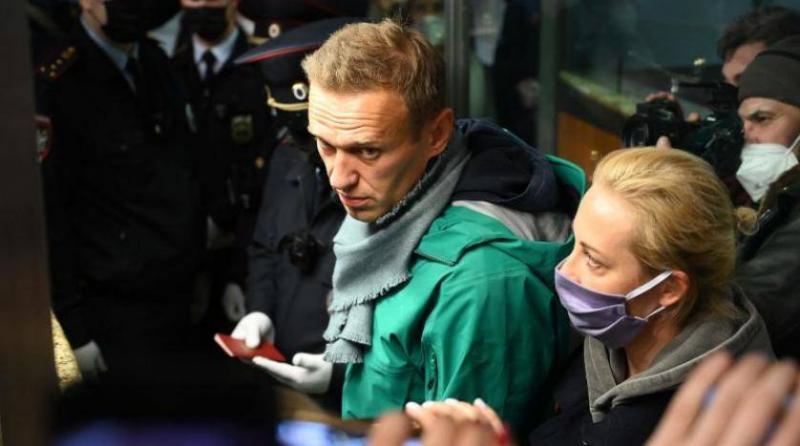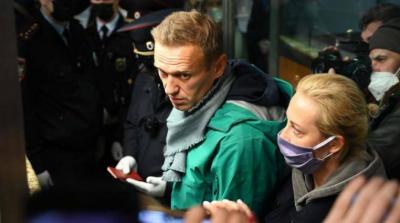The Russian Ministry of Internal Affairs announced that Russian opposition leader Alexei Navalny will be detained for 30 days, coinciding with the call from the United Nations Human Rights Commission for his immediate release.
According to Agence France-Presse, the UN Human Rights Commission expressed grave concern regarding Navalny's detention. The director of the Human Rights Commission's office, Michelle Bachelet, voiced her serious concern about Alexei Navalny's arrest, urging the Russian government to release him immediately and to respect his right to due process in accordance with the rule of law, while also renewing the call for a thorough and objective investigation into his poisoning.
British Foreign Minister Dominic Raab demanded Navalny's release, stating, "It is shocking that the Russian authorities have detained Alexei Navalny, who fell victim to a heinous crime. He should be released immediately." He added, "Instead of persecuting Mr. Navalny, Russia should explain the use of a chemical weapon on its territory."
German Foreign Minister Heiko Maas also issued a statement calling for Navalny's immediate release, indicating that Russia is obligated under its constitution and international commitments to uphold the principle of the rule of law and protect civil rights. He stated, "Of course, these principles must also apply to Alexei Navalny; he should be released immediately."
The Russian response to Western statements and calls for Navalny's immediate release came today from Russian Foreign Minister Sergey Lavrov, who deemed the Western countries' outrage over Navalny's arrest as an attempt to divert their citizens' attention from domestic issues.
Agence France-Presse reported that Russian police arrested opposition leader Alexei Navalny upon his arrival at Sheremetyevo Airport in Moscow as he was preparing to stamp his passport. Four police officers approached Navalny at the passport control area of Sheremetyevo Airport in the Russian capital and requested that he accompany them, allowing his wife to pass through.
Russian prison authorities justified Navalny's arrest upon his arrival in Moscow by claiming he violated the terms of a suspended prison sentence issued against him, indicating that Navalny will remain detained until the court makes a decision regarding him.
It is noted that Navalny told reporters on the flight returning him to Russia that he thanks the nurses and doctors who treated him in Germany for the effects of the nerve agent "Novichok," emphasizing that the day of his return to Russia "is the best day he has had in the past five months," stating, "This is my homeland... I am not afraid."
In a video statement released today by Navalny's spokesperson, he considered that holding a hearing at a police station in Moscow to discuss the extension of his detention constitutes "a complete absence of law" after he was arrested upon entering the country.
Russian opposition leader Alexei Navalny confirmed he would return to Russia after several months in Germany to recover from the alleged poisoning, despite the possibility of arrest by Russian judicial authorities.




